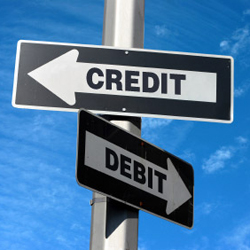- Consider a higher deductible. Increasing your deductible by just a few hundred dollars can make a big difference in your premium.
- Ask your insurance agent about discounts. You may be able to get a lower premium if your home has safety features such as dead-bolt locks, smoke detectors, an alarm system, storm shutters or fire retardant roofing material. Persons over 55 years of age or long-term customers may also be offered discounts.
- Insure your house NOT the land under it. After a disaster, the land is still there. If you don't subtract the value of the land when deciding how much homeowner's insurance to buy, you will pay more than you should.
- Don't wait till you have a loss to find out if you have the right type and amount of insurance.
- Make certain you purchase enough coverage to replace what is insured. "Replacement" coverage gives you the money to rebuild your home and replace its contents. An "Actual Cash Value" policy is cheaper but pays only what your property is worth at the time of loss your cost minus depreciation for age and wear.
- Ask about special coverage you might need. You may have to pay extra for computers, cameras, jewelry, art, antiques, musical instruments, stamp collections, etc.
- Remember that flood and earthquake damage are not covered by a standard homeowners policy. The cost of a separate earthquake policy will depend on the likelihood of earthquakes in your area.
- If you are a renter, do not assume your landlord carries insurance on your personal belongings. Purchase a separate policy for renters.
|
Editor: Crass Cash The new year is coming up and so will be real estate season. Here are some home insurance tips to review before you look at buying a home or renewing your policy.
0 Comments
Editor: Crass Cash Black Friday has come and gone, but you're still not finished! The lust for flat screen tv's and PS4's are still give you the drools. If I can't convince you to not buy this stuff at least I can help you when you purchase it.
If you're like most Americans you have both debit and credit cards. You're also probably aware of the financial risks that go with each of these. So what's a boy to do?? I'll list the pros and cons as to where you should use each of these types of cards. Debit cards: -immediate transactions for food or other quick consumables like gas and groceries. -local establishments where you can physically stand in their store if you have a problem. -use if you have a hard time controlling your spending. Credit cards: -Plane flights -Rental cars -Hotels -Anything you buy for future delivery -Anything online -Anything (as long as you pay off your bill each month) Credit cards give way more perks, especially protections for travel. The AMEX Gold is one of the best for traveling. Many times AMEX will also give life insurance policies to the owners in the event of a death. This is a huge deal that many policy owners don't even know that they have. However, if you have a hard time controlling your spending and you have credit card debt. Than you don't need credit cards at all. You need to go to a cash payment system and only use debit cards for things that cash can't pay for. Always check your statements at the end of each month to insure that nothing unauthorized was charged. Editor: Crass Cash I hope nobody that reads this blog went out today to spend money that they don't have, to buy things that they don't need, to impress people that don't care about them. Spend today enjoying your family not buying things that you won't remember on your death bed. |
AuthorThis website was created due to the atrociously misguided financial advice that I've heard over the decades. Financial freedom is not intellectually strenuous, but it takes discipline. Categories
All
Archives
October 2017
|



 RSS Feed
RSS Feed
